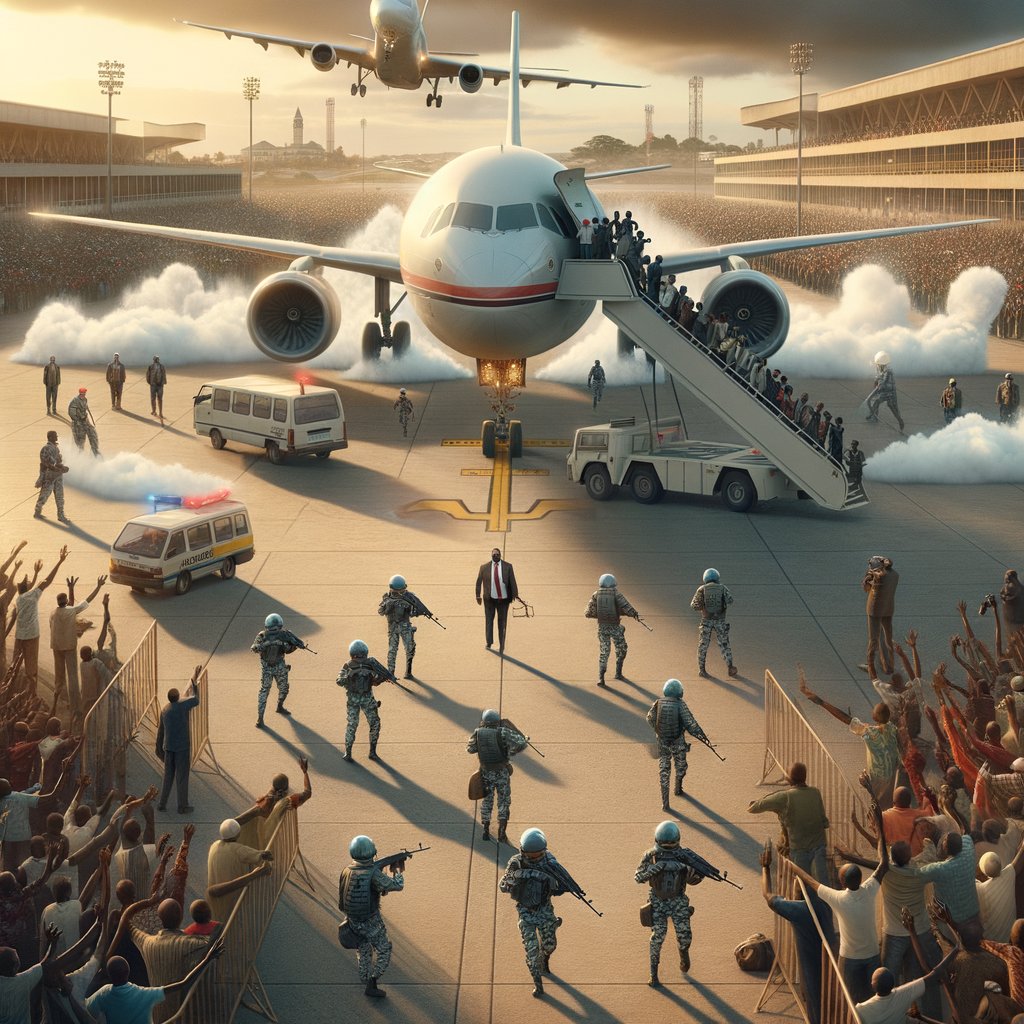Image created by AI
Mozambique's Political Turmoil: Opposition Leader Venancio Mondlane Returns Amidst Violent Clashes
The political landscape in Mozambique witnessed heightened tensions as Venancio Mondlane, the nation's principal opposition leader, made his return from exile on Thursday. His arrival was marked by a volatile reception as security forces deployed tear gas against the large crowds of supporters who had congregated at Mavalane International Airport in Maputo to welcome him.
Mondlane, who had fled Mozambique in October following a controversial election result, disembarked from a plane amidst a dramatically tense atmosphere. The October 9 elections, which resulted in the re-election of the long-dominant Frelimo party, have been the subject of intense scrutiny and allegations of vote-rigging. Observers both domestically and internationally noted significant irregularities and potential tampering with election outcomes.
The decision by Mozambique's Constitutional Council last month to uphold the election results has only intensified the public outcry and protests against what many perceive as an extension of Frelimo's 50-year rule, filled with accusations of electoral manipulations since Mozambique's first democratic election in 1994.
The return of Mondlane was anticipated with much fervor, as evidenced by the thousands of supporters who aimed to gather in the capital, only to be met with roadblocks and tear gas by the police. The use of force by security personnel added to the already volatile situation surrounding Mondlane's homecoming. Over 100 individuals have died in the protests incited by the opposition in response to the alleged election fraud.
Mondlane, a stark critic of the Frelimo party's enduring hold on power, fled for his life after the assassination of two senior members of his party in the election's aftermath. His return signals a significant moment for Mozambique's political opposition, as they continue to challenge what they deem an illegitimate extension of Frelimo's rule, under the soon-to-be inaugurated President-elect Daniel Chapo.
This critical juncture in Mozambique's history suggests that the struggle for a genuinely democratic governance structure is far from over, with both the opposition and its supporters bracing for continued resistance against a regime that they believe has overstayed its democratic welcome.










